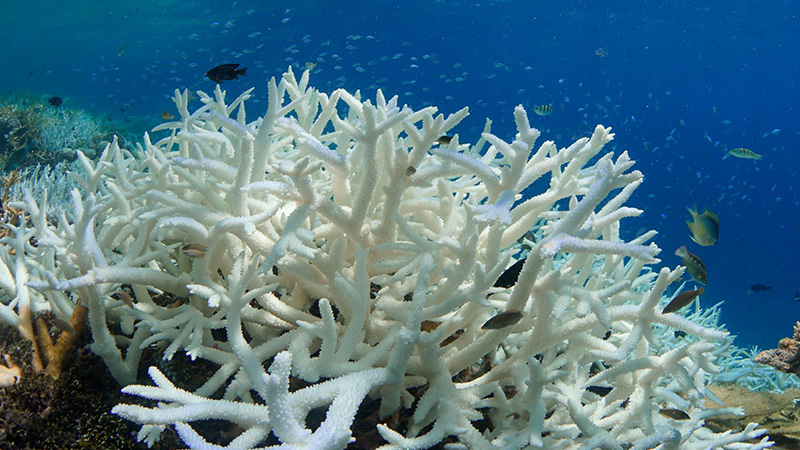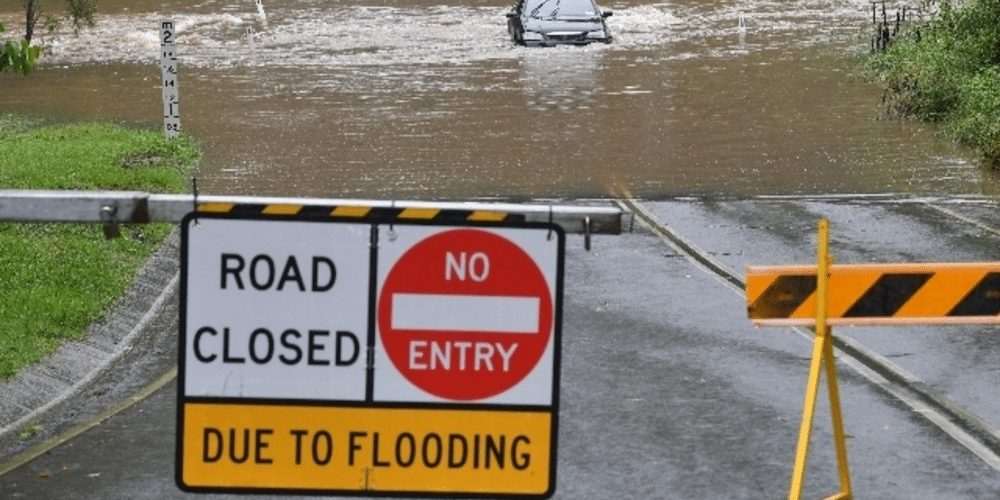The underwater gardens in Singapore have lost their color earlier this year caused by warming seas.
The sea warming was caused by the hottest climate on record this year, but this month some corals are starting to recover from the longest bleaching incident happened in the country.
Preliminary assessments by scientists here have shown that this year’s event is more severe than two other major bleaching events in 1998 and 2010.
On July this year, Rick Rigazio, an operations research analyst in the US Navy, Coast Guard, and Marines, posted Ed King’s report on World Meteorological Organization (WMO) in his Facebook, “The El Niño event, which turned up the Earth’s thermostat, has now disappeared. Climate change, caused by heat-trapping greenhouse gases, will not. This means we face more heatwaves, more extreme rainfall and the potential for higher impact tropical cyclones.”
Data from US National Oceanic and Atmospheric Administration and NASA published three months ago confirmed June was the 14th month in a row to break temperature records.
Decades-long trends of climate change are reaching new climaxes, fuelled by the strong 2015/2016 El Niño,” said WMO chief Petteri Taalas. WMO is a specialized agency of the United Nations whose mandate covers weather, climate and water resources.
Bleaching occurs when abnormally high sea temperatures cause corals to expel the zooxanthellae living in them, turning them white.
Zooxanthellae is a symbiotic algae, which is what corals depended on for food.
Dr Karenne Tun, director of the coastal and marine division at the National Parks Board’s (NParks) National Biodiversity Centre, said the bleaching event started in June and ended in September in 2010.
Dr Tun said, “The sea surface temperatures dipped to just below the bleaching threshold from early June, but continued to remain above the maximum monthly mean till early October.”
She said observations by scientists revealed that recovery from bleaching is still going on this month.
“But we are hopeful that the remaining bleached corals will recover within the next one to two months if the sea surface temperatures continue on their downward trend,” she added.
Bleach Watch Singapore also posted in its Facebook that the community observed the mass coral bleaching in Singapore in 2016.
And coral expert Chou Loke Ming, an adjunct research professor at the National University of Singapore’s Tropical Marine Science Institute said, the bleaching event lasted from June to August in 1998. But from end-April this year, water temperatures began exceeding the bleaching threshold which is 31.14C.
Water temperatures have since dropped to just below 30C, but is still above the average temperature of 29.6C expected at this time of the year.
Prof Chou added, “A bleaching event is considered to have ended when sea surface temperatures go back to normal.”
NParks has endeavored to aid in the corals’ recovery. For example, it has closed the dive trails at the Sisters’ Island Marine Park since June to minimise additional stress to the corals.
The dive trails will remain closed until the end of this month, Nparks said.
Prof Chou also said scientists are now following up on coral colonies affected to assess the survival rate; at the present, it was too soon to compare the impact.
Mortality was about 20 percent in 1998 and 12 percent in 2010. But in both cases, recovery was seen, he said.
Coral bleaching is not just restricted to Singapore, the Great Barrier Reef in Australia is also affected. But it has not died.
The coral reef system is too large to simply die off, said Prof Chou.
He deliberated that while some parts of the system may die, it is also possible to end up with reefs with a different composition of coral species, depending on which can thrive under the changed conditions.
Prof Chou concluded, “Singapore reefs have recovered from both bleaching events… and I take heart in reef resilience.”






